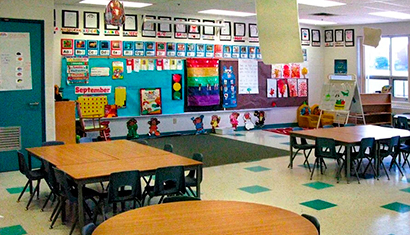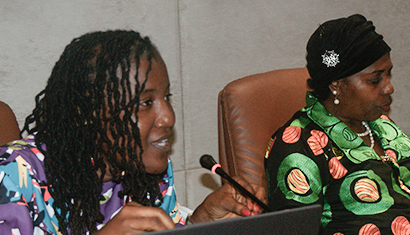
Private education and discrimination in Morocco
Moroccan civil society mobilizes following the UN questions on private education and discrimination in Morocco
(Rabat) – Nearly 30 people representing various Moroccan civil society organizations met on Saturday, March 1 in Rabat to build their capacities on the right to education and discuss recommendations to reform the country’s education system.
This event was organised by the Moroccan Coalition for Education for All (MCEFA) and the Forum of Alternatives Morocco (FMAS) following the publication in mid-February by the UN Committee on the Rights of the Child (CRC) of a list of issues raising questions about Morocco’s education system. The CRC asked Morocco to explain itself about the persistent discrimination in the country’s educational system and the lack of regulation of the private education sector (see MCEFA’s press release http://globalinitiative-escr.org/?p=1183). Many civil society organisations from diverse backgrounds, including associations and unions as well as a member of parliament met for a day to ask the government to respond precisely and transparently to the questions it was asked.
This meeting was organised as the government has not adequately consulted Moroccan civil society in the review process before the CRC. Fatna Afid, the teachers’ union Democratic Labour Organization (ODT)’s general secretary expressed her indignation towards ‘the Moroccan government’s failure to involve the teachers’ unions and civil society to develop the Government report.’ ’I also regret that the Government has not published the report or the issues raised by the CRC for the public to be informed’ she said.
The meeting was also an opportunity for the participants to begin drafting recommendations on the reform of the education system, based on the issues raised by the CRC. MP Khadija Yamllahi stressed the importance of this work: ‘The reform of the education system is a priority to guarantee equal opportunities and social justice. We must initiate the debate and mobilize on the right to education and the privatization of education. Mobilization of civil society is crucial and strategic for the government to reform the education system and to regulate the private education sector.’
This diagnosis was confirmed by Khadija Boujadi, coordinator of the Department of Foreign Affairs and member of the board of the teacher’s union of the Democratic Federation of Labour (SNE/FDT): ‘The conference was a success because the range of partners that were present agreed to denounce the privatisation of the educational system in Morocco and the impact this has on the right to education. To promote quality public education, we must react united!’
The president of the MCEFA, Ahmed Sehouate, stated his satisfaction to see civil society emphasizing the dangers of privatization in education in Morocco and mobilising for reform: ‘The meeting is a turning point and a crucial step forward for the action of the MCEFA, firstly because of the quality and diversity of the organizations present, and secondly, because of the importance of the issues discussed: the report of the CRC and the development of private education at the expense of a quality public education.’
The participants to Saturday’s symposium agreed on a work plan and expected to make written recommendations in the coming months. They also planned to organize another work seminar in May to finalize their proposals and extend advocacy with the government, which must respond in writing to questions from CRC before 15 June 2014.




